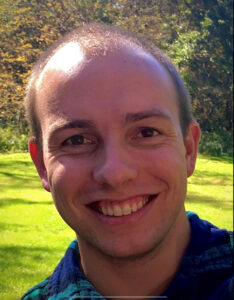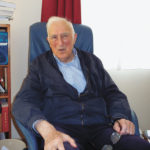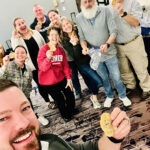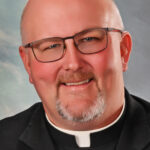By Patrick Schmadeke
Evangelization in the world

We decided to add kale to our gardening repertoire this year. Much to my surprise, the instructions said to plant them 12-18 inches apart, with 2 feet between rows. “Can’t we plant them closer together?,” I asked my wife. Now, one month later, what began as small, unassuming stalks and leaves, have grown expansively, with leaves broadening as they reach outward and upward for the nourishing sun. As the kale has grown, the Church through the synodal process has grown, too. Kale and questions have some things in common: both need space to flourish and the flourishing is bound to surprise.
Ordinarily in the Church, an Instrumentum Laboris (“Working Document”) functions as a rough draft of what will eventually, after a gathering a Synod of Bishops in Rome, develop into a post-synodal apostolic exhortation from a pope. But the current Synod has been no ordinary Synod. It is paradigm-shifting in the way it invited the participation of all people and in the way it has led with questions instead of answers. This Synod has opened up new horizons. As I was reading the Instrumentum Laboris published June 20, I wondered why I expected it to be similar to past working documents.
Like the Synod as a whole, this working document is unlike any we have seen before. What makes it so distinctive is the nearly 300 questions it poses for discernment. The text includes 15 worksheets, five for each of the three themes of the Synod: communion, participation and mission.
As our diocesan Church focuses on welcoming and belonging for the next year, I thought it fitting to highlight questions from the working document that may help us deepen our efforts. Here are some of the questions:
- “The community’s liturgical life is the source of its mission. How can its renewal be sustained in a synodal way by enhancing ministries, charisms and vocations and offering spaces of welcome and belonging?”
- “How can we be more open and welcoming towards migrants and refugees, ethnic and cultural minorities, and indigenous communities who have long been part of the Church but are often on the margins? How can the Church better embrace their presence as a gift?”
- “How can we create spaces where those who feel hurt by the Church and unwelcomed by the community feel recognized, received, free to ask questions and not judged?”
Questions are a way of organizing our communities around the essential act of communal discernment. These questions will be useful insofar as we put them into practice. At the Synodal Summit on June 17, panelist Dan Ebener noted that “we live in a culture of tell.” This, and our cultural obsession with “having it all figured out,” crowds out the space for life to grow and communities to flourish.
We must give questions space. We must give questions time. We must rehash the same questions with different people, at different times of day, in different settings, all with patience and prayer. We should not quickly decide what fruit a given question may bear. That could cut off future insights. We must sit with questions, living in the tension of inquiry. We need to give ourselves the space to ask questions well, to press them past any initial feeling of resolution.
The eros of the human mind is the desire to ask, to know, to love, to discern. As Bernard Lonergan described it, “Deep within us all, emergent when the noise of other appetites is stilled, there is a drive to know, to understand, to see why, to discover the reason, to find the cause, to explain … But the fact of inquiry is beyond all doubt … It can fill [one’s] waking thoughts, hide [one] from the world of ordinary affairs, invade the very fabric of [one’s] dreams. It can demand endless sacrifices that are made without regret though there is only the hope, never a certain promise, of success.”
We can plant questions like we can plant kale. Both need the proper space. The Synod is planting questions in a way the Church has never done before. We need to give the Spirit space to move among us if we are to flourish, to reach outward and upward.
(Patrick Schmadeke is director of evangelization for the Diocese of Davenport.)











